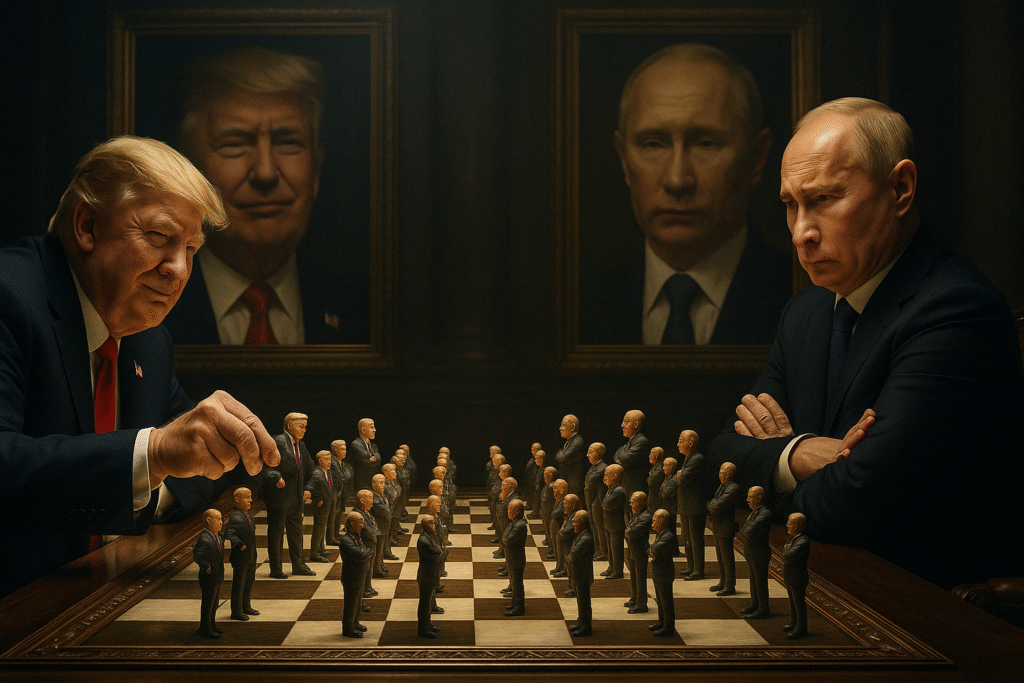Global politics pretends to be a game of reason—national interests, security concerns, economic strategy. But beneath the surface, it is often a game of ego. Behind every “national decision” is a human being—one who carries personal pride, emotional history, and a deep-rooted need to be seen, respected, or feared.
When two superpowers negotiate, especially in times of war, the danger is not just in weapons or alliances—it is in the Psychologie of the leaders. Whether democratic or autocratic, each system eventually concentrates responsibility in one mind. And if that mind is fueled by recognition, the world becomes a stage for performance, not peace.
In the case of the Ukraine war, this truth becomes painfully visible. The most decisive conversations are not between systems, but between egos.
Eidoism offers a different lens: What if we stripped away the need to be recognized, remembered, or revered? What if leadership returned to Formular—to the quiet craft of solving what holds, not performing what wins?

1. The Illusion of National Interest
What we often call “national interest” is not a pure, monolithic force. It is an abstraction—a constructed amalgam of competing interests: economic pressures from elite industries, ideological positions from government factions, military influence, and popular sentiment. Ultimately, this mix is filtered through a central decision-maker: the head of state. Whether in democratic or autocratic regimes, this individual becomes the bottleneck of global consequences.
2. The Ego at the Helm
In face-to-face negotiations—like those speculated between Trump and Putin—the official scripts quickly dissolve. Beneath them lies a personal psychological encounter. Pride, status, legacy, and fear of humiliation all creep into the dialogue. These are not just abstract risks; they are neural and emotional patterns deeply rooted in the leaders’ need for Anerkennung. The more a leader is driven by ego—the more they perform for history, their audience, or their self-image—the more dangerous the situation becomes.
A stable nuclear power requires not just weapons control, but ego control.
3. Eidoism’s Insight:
Eidoism reveals how even the most complex political and military decisions can be traced back to individual recognition loops. If the leader’s self-worth is tied to domination, revenge, or being remembered as “the strong one,” global negotiations become performance stages. Power ceases to be about form or function—it becomes theater. And in that theater, billions of lives are at stake.
4. Recognition vs. Form in Diplomacy
A true statesman or stateswoman would act with detachment—not because they are indifferent, but because they see the bigger structure. They are not performing for applause, legacy, or press. They are solving for Formular—what holds, what balances, what works quietly. This kind of leadership is almost absent in today’s stage-lit, camera-fed political culture.
5. The Emotional Amplification of Nuclear Threats
When a nuclear power is led by a personality with high recognition demand, the stakes multiply. Emotional decisions, impulsive escalations, or symbolic “red lines” become existential dangers. The world becomes hostage not to policy—but to personal psychology.


